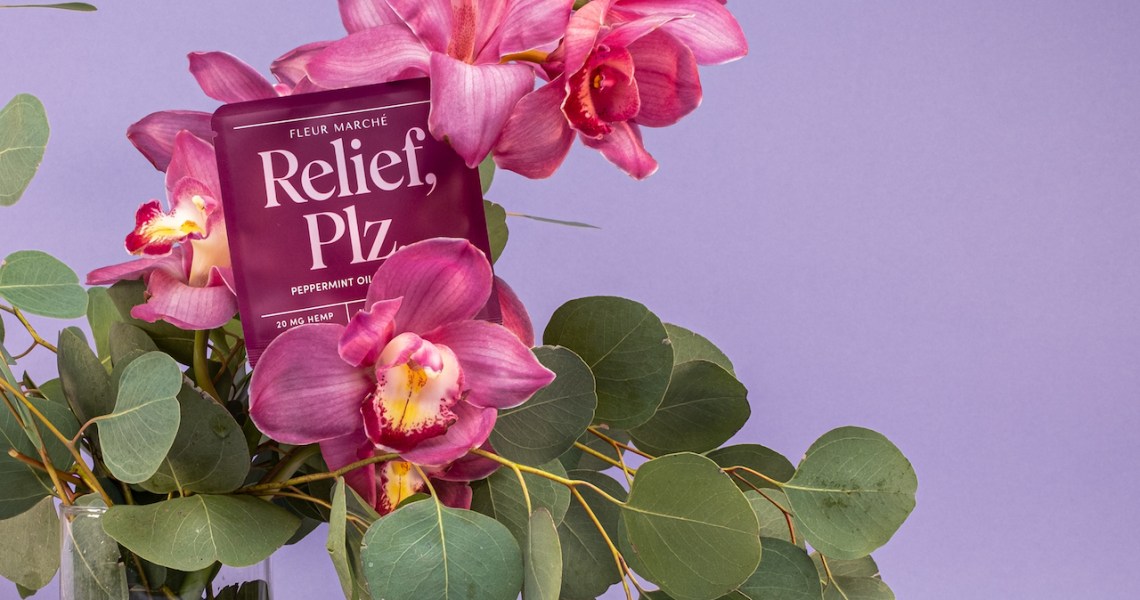Fleur Marché, known as the “Goop of CBD,” is getting into private-label.
On February 3, the beauty and wellness CBD e-tailer launched a namesake collection of four CBD wellness patches for sale on its site, with the start of its marketing campaign for the launch planned for February 4. The patches contain cannabidiol and hemp along with different supplements for various wellness needs: ”energy” patches contain B12, while “sleep” contain melatonin. Patches are sold for $6 each or $22 per four-pack.
Launched in 2019 by former Goop executives Meredith Schroeder and Ashley Lewis, Fleur Marché sells CBD products including skin care, tinctures, topicals and edibles. In 2020, its e-commerce revenue increased 112% over 2019.
According to Lewis, the e-tailer’s strategy to expand from product curation to private-label is “similar to the playbook that we helped to build and execute at Goop.” She said she and Schroeder started planning the private-label brand in the third quarter of 2019.
“We felt like, even in [our] 10 months of being operational, we had a pretty good take on where the holes in the market were — where there’s too much of things, where there’s not enough of things. Over the course of that first year, probably 400 different brands and even more products came across our desk that we were evaluating,” said Lewis.

Ad position: web_incontent_pos1
The company used formal and informal survey methods to determine customer demand and develop its products. The line is targeted toward a Gen-Z and young millennial demographic, and uses a bolder color aesthetic than the pastel color scheme on Fleur Marché’s site. The company’s core shopper demographic is 25- to 40-years-old.
According to Lewis, the brand was inspired by the rise of social media-friendly patches, ranging from decorative zit sticker brands like Starface to photogenic eye mask makers like KNC Beauty. She noted that most transdermal patches on the market are either clear or come in non-inclusive flesh tones.
“The creative direction we’re now going in is certainly a little bit more bold and in-your-face, because that’s what this new generation is,” said Lewis. The brand is gifting products to Gen Z “nano-influencers” whose followers are mostly people they’re friends with in real life. “We want your coolest friend to be using our product,” she said.
“We wanted to move away from a discreet vibe,” said co-founder and CCO Schroeder, who described the vibe as closer to Gen-Z labels like Madhappy.

Ad position: web_incontent_pos2
For its launch campaign, the brand did a virtual photo shoot with 15 different women to create the imagery for its site and social media. “We gave them loose direction, but we empowered them to just basically wear it in their own wellness routine, and then document it,” said Schroeder.
“An undertone of what we’re trying to do is democratize wellness,” said Schroeder. In contrast to Goop, “We wanted this to feel much more approachable, not luxury.”
The brand is focused on DTC sales, for now, but “ultimately” plans to sell through wholesale channels, said Lewis. “Wholesale is certainly part of our strategy, and really important in terms of driving volume, but one of the things that’s hard with wholesale is that you really don’t understand who’s buying the product. The plan is to spend a few months selling directly to customers, to understand what they gravitate toward.”




